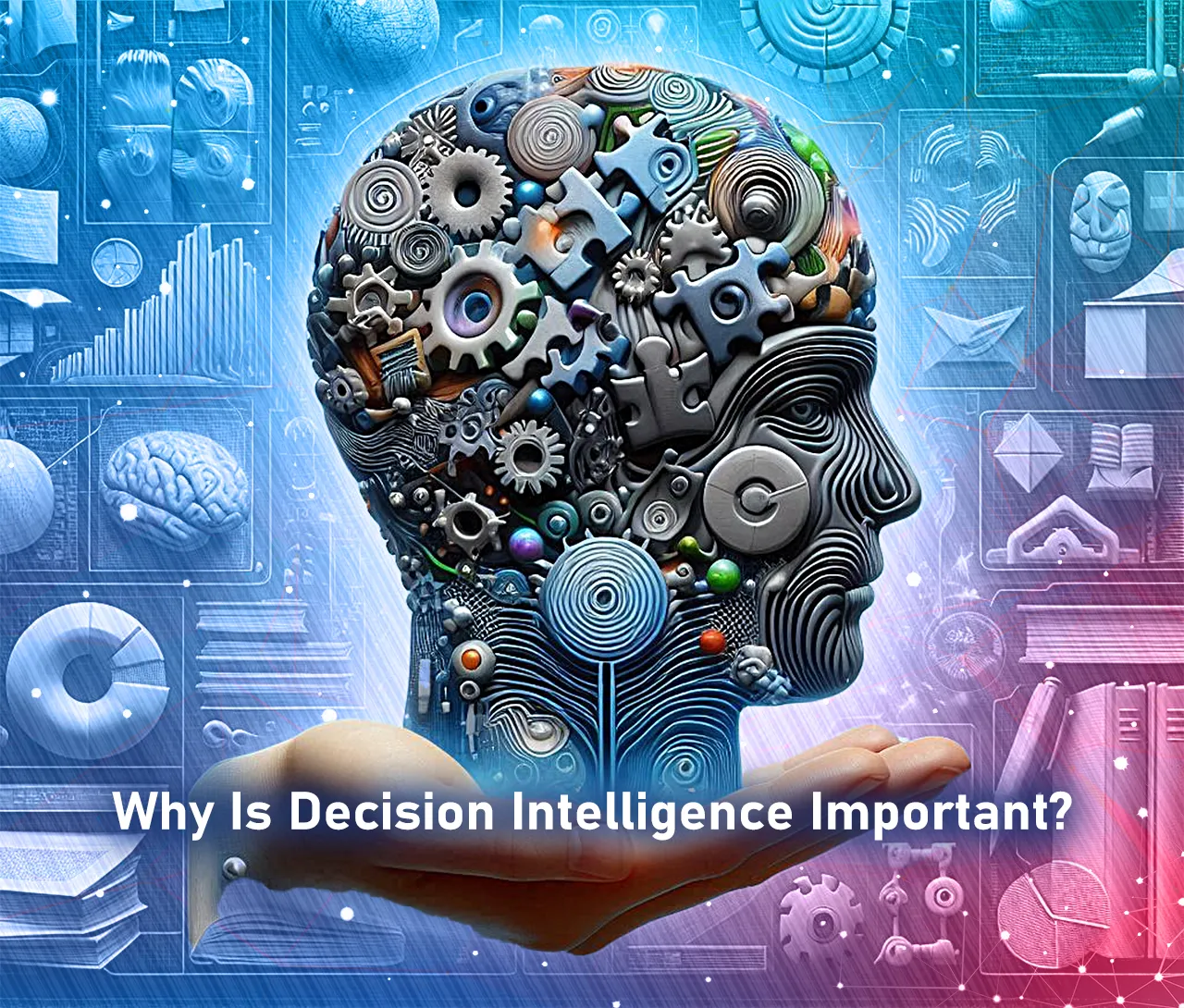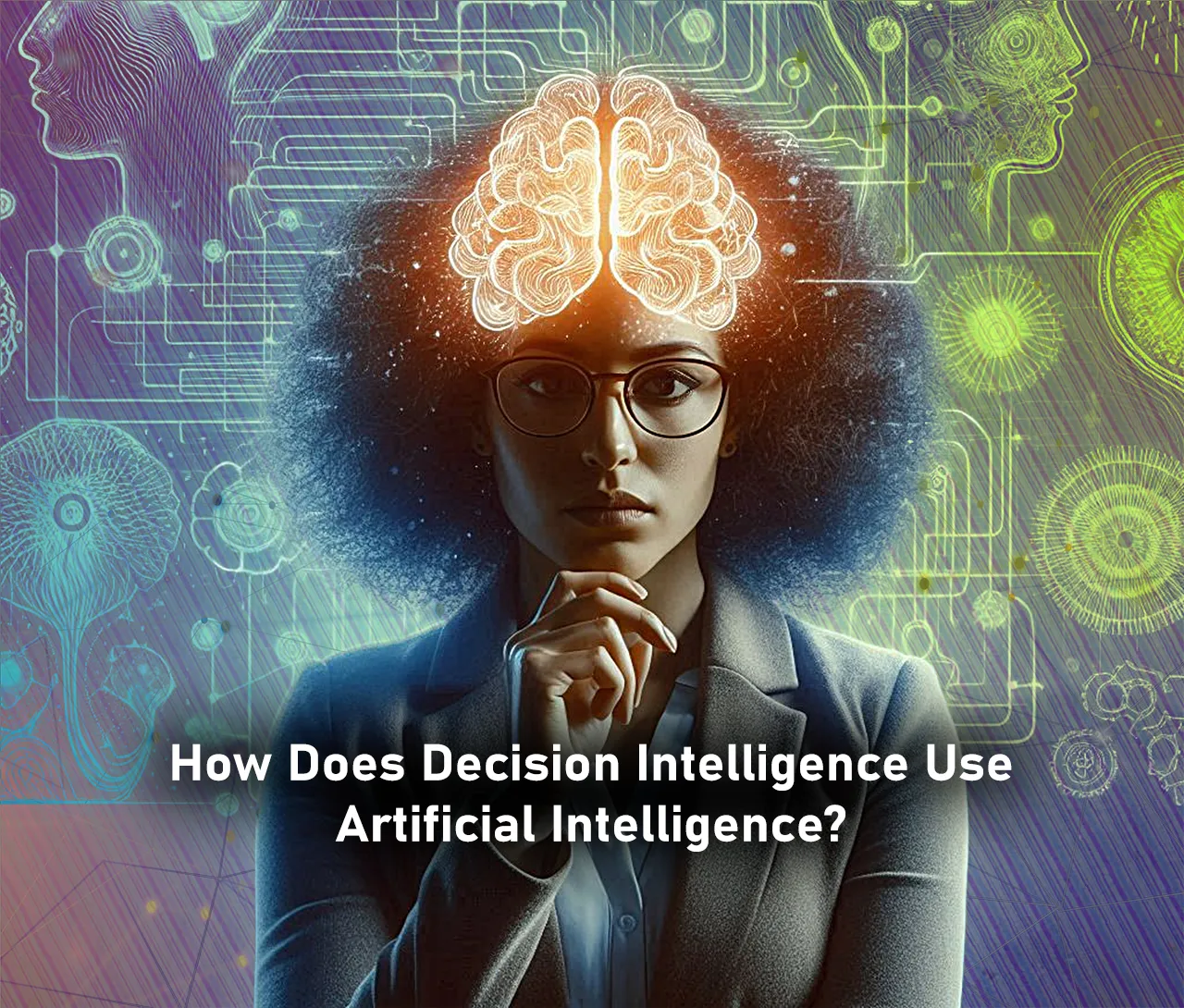In today’s world, making good decisions is key, especially for business. This is where decision intelligence (DI) comes in. Decision intelligence uses AI and advanced analytics to supercharge the decision-making process. By combining data with human expertise, DI helps organizations make better decisions. Let’s learn more about it.
What Is Decision Intelligence?
The use of artificial intelligence (AI) and machine learning (ML) methods in decision-making across a range of business domains is known as decision intelligence (DI). It entails making better decisions and enhancing business performance through the application of advanced analytics and data-driven insights. By giving people an all-encompassing and easily accessible perspective of company data, DI seeks to empower people with AI and help them make the best decisions possible.
Rather than trying to replace people in the decision-making process, the goal is to enhance human capabilities and give them the resources they need to make judgments more quickly and accurately. Future trends should see a major increase in the use of DI as more businesses realize its ability to improve decision-making and provide beneficial results.
Why Is Decision Intelligence Important?
DI allows companies to use AI and data to make fast, accurate, and consistent decisions and solve specific business problems. It lets data be gathered and modeled with machine learning to predict the best outcome for business decision-making.
What DI isn’t is removing humans from the decision-making process altogether. It’s about giving humans AI a more complete, more accessible view of all their business data so they can make the best decision.
It lets companies process and predict using data to make better decisions across every level of the business and get more visibility into their operations while driving game-changing business outcomes.
33% of organizations used DI, including decision modeling, by 2023.
IDC says companies that don’t make progress with decision intelligence will feel the same pain as those that were late to the internet.
Benefits of Decision Intelligence
- Better Decisions: DI combines data and human expertise to make more informed and accurate decisions.
- Faster and more agile: DI speeds up insight discovery so you can respond to opportunities and challenges.
- More Data Utilization: DI helps you make sense of lots of data and find valuable insights for strategic decision-making.
- More Efficiency and Productivity: DI automates data analysis so you can focus on the important stuff.
- Scalable and accessible: DI platforms are for everyone, not just the data scientists.
Features of Decision Intelligence
- Decision Augmentation: DI combines data science and technology to supercharge human decision-making at scale.
- Structured Decision Making: DI provides a framework for decision-making using data, analytics, and technology.
- Data and Insights: DI extracts insights from data and actionable information for decision-making.
- Efficiency and Scalability: DI automates data analysis so you can make faster and better decisions at scale.
- Empowerment and Democratization: DI gives decision-makers the tools and insights to make informed decisions.
How Does Decision Intelligence Use Artificial Intelligence?
Decision-makers are under obligation to respond swiftly and decisively based on the facts in the fast-paced commercial world of today. For this reason, companies are using artificial intelligence (AI) and machine learning (ML) to enhance their decision-making.
The problem is that organizations are deploying these technologies without fully understanding the importance of putting the data they collect into context to get a bigger picture of what data is being collected and how it’s being applied to the decision-making process. Without context, AI predictions are unreliable and open the door to long-term automation problems and other pitfalls that can cost you profits.
Entity resolution is what puts data into context by linking billions of data points across multiple systems into one single, accurate view of the real-world connections between people, places, and organizations to create a single source of truth.
When it comes to using AI and ML in the decision-making process, the quality of the data you use is everything. That’s why data scientists are so focused on using clean, transparent data to make the best algorithms possible.
What Are Decision-Intelligence Platforms?
Decision intelligence platforms allow you to manage, merge, and analyze data from anywhere and scale to big data. These platforms use key technologies like data fusion, machine learning and AI, and collaboration and data visualization tools.
When deploying intelligence platforms, one size does not fit all. While generic analytics and AI solutions have many capabilities, an industry-specific, vertical approach will deliver better outcomes. An industry-specific approach is better because you can get solutions tailored to your data sources, investigations, and use cases.
What Is The Difference Between AI And Decision Intelligence?
AI and DI are related but different. AI is a broad field that creates intelligent machines that can do tasks that require human intelligence, such as problem-solving, learning, and decision-making. It involves developing algorithms and systems that can reason and make decisions based on input data. AI aims to replicate human intelligence.
Decision intelligence is a subfield of AI that focuses on optimizing decision-making. DI combines insights and output from data and advanced analytics to help humans make better decisions in their context. It provides accurate and timely information to decision-makers so they can optimize complex business decision-making. DI goes beyond generating insights and recommendations; it’s about applying those insights to drive decision-making.
AI tries to replicate human intelligence; DI is more about augmenting human decision-making. It bridges the gap between your existing enterprise platforms and analytics-focused data and AI platforms, so decision-makers can interact with intelligence and make data-driven commercial decisions. DI is about outcomes and the integration of data, analytics, and decision-making.
End Pointers
Decision intelligence is a game-changing approach to decision-making, using artificial intelligence and advanced analytics to get better business outcomes. By combining data-driven insights with human expertise, DI lets organizations make more informed, accurate, and timely decisions. It goes beyond traditional analytics by focusing on the application of insights and enabling decision-makers to act now. As DI evolves and gains momentum, it will change the way businesses make decisions and get better, faster, and more successful in the digital age.


